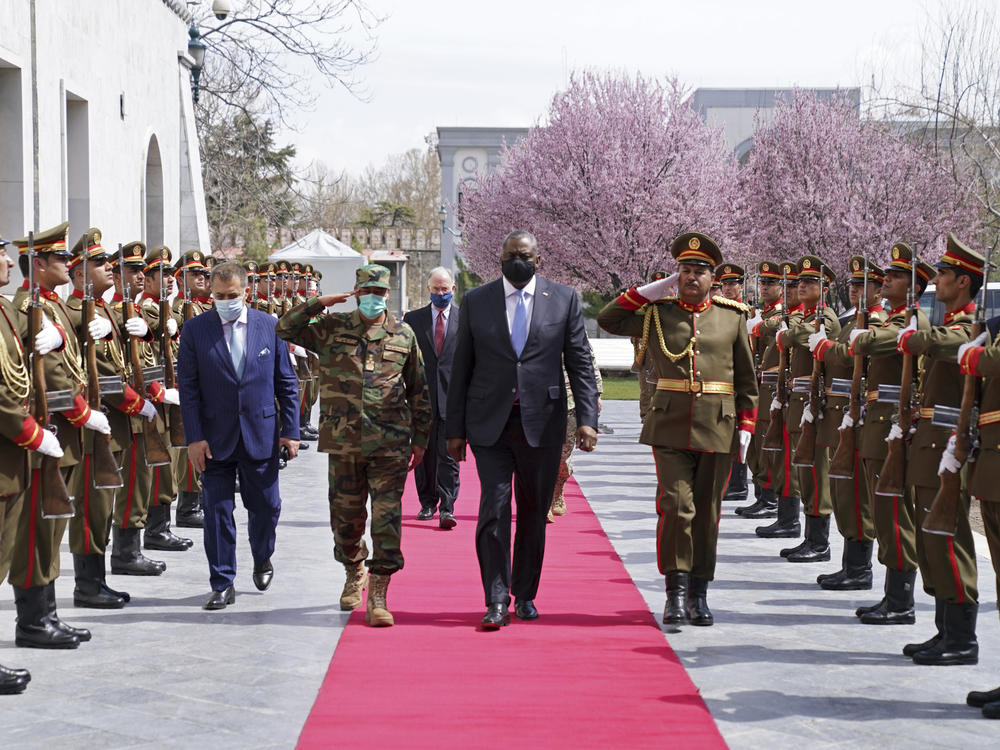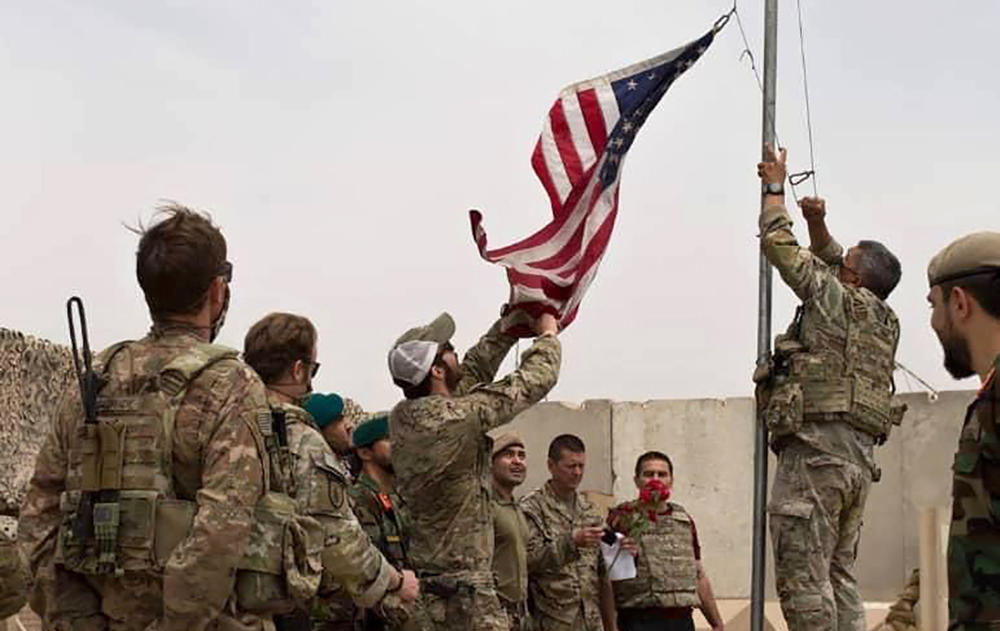Section Branding
Header Content
The U.S. Looks To Support The Afghan Military From 'Over The Horizon'
Primary Content
President Biden and his Pentagon chiefs say the U.S. will assist Afghanistan's military from afar after American troops pull out. They haven't announced the details, but they do have a common refrain: "over the horizon."
"We will maintain an over-the-horizon capacity," Biden said in his recent address to a joint session of Congress.
"We will continue to support (the Afghans) with over-the-horizon logistics," Defense Secretary Lloyd Austin said at a recent new conference.
"We have to sort out doing it over the horizon," added the chairman of the Joint Chiefs, Army Gen. Mark Milley.
Right now, "over the horizon" is more a fuzzy concept than a polished military plan. But when U.S. forces leave Afghanistan in September, if not sooner, we're likely to find out fast exactly what it means.
"The Taliban will test the Afghan security forces very early on. They need to be prepared for that," said retired Army Gen. Joe Votel, who oversaw the Afghan war effort for three years as the head of Central Command. "Whatever support we're prepared to provide over the horizon, we need to be prepared for that as well."
The U.S. did have some military bases in the region during the early 2000s. But today, there are no American bases in any of the six countries that border landlocked Afghanistan. U.S. relations with Pakistan have long since soured, and Pakistan said last week that it won't host U.S. forces.
Retired Army Gen. David Petraeus, who also led U.S. troops in Afghanistan, thinks it's highly unlikely that the U.S. will establish bases elsewhere in the region in the coming months.
"I doubt that we will get a base in the Central Asian states anytime soon," Petraeus said during a recent online panel.
One other option would be for the U.S. to park an aircraft carrier in the Arabian Sea, well south of Afghanistan, but Petraeus and others see that as highly impractical.
Bases in the Gulf
The closest existing U.S. bases are in the Gulf region, including an air base in Qatar. And that's a long way from Afghanistan.
"So maybe you get some drones flying from there," Petraeus said, adding, "that's a long flight. For a drone that can take six to eight hours."
When asked at a news conference about future U.S. air support, Milley declined to answer directly.
"The Afghan air force does 80 to 90% of all airstrikes in support of the Afghan ground forces," he said. "We're actually doing very few. The key will be the Afghan Air Force."
However, the Afghan air force uses U.S. aircraft that are maintained by a large contingent of U.S. civilian contractors. Most, if not all, of those contractors are expected to leave when the U.S. military forces pull out.
If U.S. assistance is limited, then how well will the Afghan forces be able to defend against the Taliban?
Joe Votel says parts of the Afghan military are very capable.
"A lot of my focus during my career was on the Afghan special operations forces, who are quite good, who have good leaders, who have good training, who are well-equipped," said Votel. "I think that they will perform well."
After two decades in Afghanistan, the U.S. military has developed strong ties with the Afghan forces. In addition, improved technology can generate some valuable intelligence without American troops on the ground.
Still, Votel acknowledges that U.S.-Afghan military relations, built by working in the field, day-by-day, side-by-side, will suffer.
Petraeus says he's worries about the scenario a couple of years down the road.
"My preference would have been to just manage this problem. And we were managing reasonably well with 3,500 troops," he said. "We may, two or three years from now, or perhaps even sooner, come to regret this decision."
Shaky peace prospects
With the U.S. withdrawal already underway, the slim hopes for a peace agreement with the Taliban have all but vanished. And Taliban forces already control much of the countryside.
But Milley says people shouldn't jump to conclusions.
"The Afghan security forces can fight and they're fighting for their own country now," he said. "It's not a foregone conclusion, in my professional military estimate, that the Taliban automatically win and Kabul falls, right, in those kind of dire predictions."
Afghanistan's uncertain future is fast approaching. In fact, it's just "over the horizon."
Greg Myre is an NPR national security correspondent. Follow him @gregmyre1.
Copyright 2021 NPR. To see more, visit https://www.npr.org.


